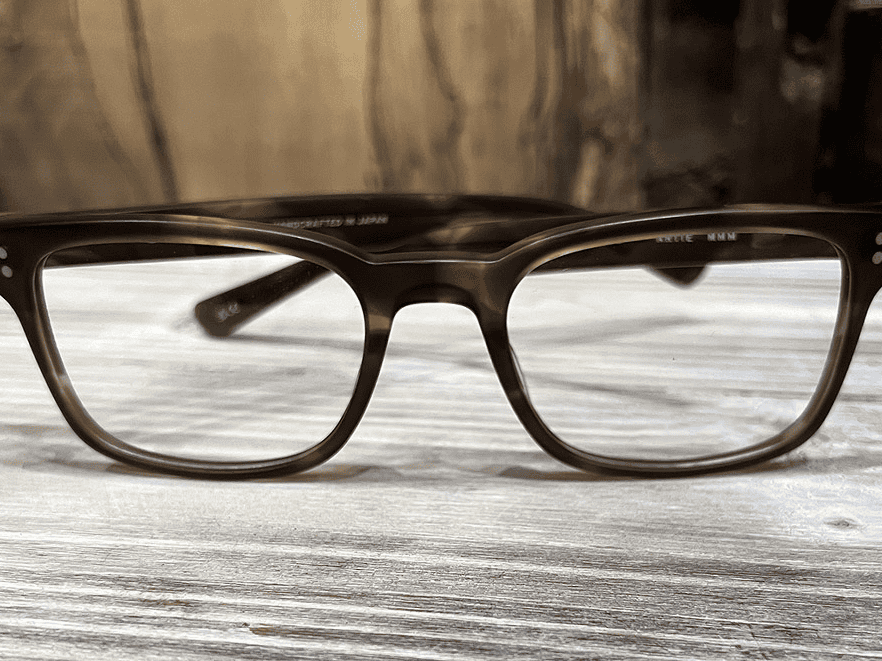When it comes to curating a collection of eyewear, the choice between handmade and machine-made frames offers an exploration of craft, technology, and personal expression. Independent eyewear brands, in particular, bring this choice to life, offering frames that range from meticulously handcrafted pieces steeped in tradition to precisely engineered designs born from cutting-edge manufacturing techniques. For those with a discerning eye, understanding the unique qualities of each approach is key to building a collection that reflects both artistry and innovation.
The Art of Handmade Eyeglasses
Handmade eyeglasses represent the pinnacle of craftsmanship. Each pair is a testament to the skill, patience, and artistry of the maker. Independent eyewear brands that focus on handmade frames often do so with a philosophy rooted in tradition, where the process of creation is as important as the final product. These frames are typically produced in small batches, with some brands even offering custom-made options tailored to the individual wearer.
The process of crafting handmade eyeglasses is meticulous. It begins with the selection of materials—often the finest acetates, woods, metals, or natural horn. These materials are chosen not only for their aesthetic qualities but also for their durability and comfort. Acetate, for instance, is a popular choice due to its versatility and ability to be shaped into complex designs while retaining a lightweight feel.
Once the materials are selected, the artisan begins the labor-intensive process of shaping, sanding, and polishing each component by hand. This level of detail ensures that every aspect of the frame, from the curvature of the temples to the smoothness of the edges, meets the highest standards. Unlike mass-produced frames, where uniformity is key, handmade frames embrace their slight imperfections as a mark of authenticity. These imperfections are not flaws but rather characteristics that tell the story of their creation.
The allure of handmade frames lies in their exclusivity and the connection to the artisan’s vision. Each frame carries a story—whether it’s a homage to a classic design, an exploration of new materials, or a reflection of the maker’s heritage. These frames are not just accessories; they are heirlooms, often passed down through generations, increasing in value and significance over time.
The Precision of Machine Made Eyeglasses
Machine-made eyeglasses represent the intersection of technology and design. While handmade frames celebrate the artistry of human touch, machine-made frames exemplify precision, efficiency, and innovation. Independent brands that produce machine-made frames often utilize state-of-the-art manufacturing techniques to create eyewear that is both stylish and reliable.
The process of machine production begins with computer-aided design (CAD) software, which allows designers to experiment with complex shapes and intricate details that would be challenging to achieve by hand. This technology enables brands to push the boundaries of eyewear design, offering frames that are lightweight, durable, or a totally bizzare and unique design you can’t see anywhere else.
Machine-made frames also offer an opportunity for innovation in materials. Brands often experiment with cutting-edge materials such as carbon fiber, titanium, and advanced polymers, which provide a unique combination of strength, flexibility, and lightness. These materials are not only functional but also contribute to the aesthetic appeal of the frames, offering sleek, modern designs that stand out in any collection.
However, it’s important to note that machine-made does not mean mass-produced in the traditional sense. Many independent brands maintain a level of exclusivity by producing limited runs of machine-made frames. This approach combines the benefits of precision manufacturing with rarity, making these frames highly sought after by collectors who appreciate both quality and exclusivity.
Independent Brands in Eyewear Craftsmanship
Independent brands are often driven by a passion for design and a commitment to quality, setting them apart from larger, mass-market companies. Whether they focus on handmade or machine-made processes, independent brands share a dedication to creating eyewear that resonates with discerning collectors, connoisseurs and first time buyers alike.
One of the defining characteristics of independent brands is their willingness to experiment and innovate. This is evident in the variety of techniques and materials they use, whether it’s incorporating sustainable practices into their production processes or collaborating with artists and designers to create unique, limited-edition pieces. For instance, some brands have embraced eco-friendly materials such as bio-acetate, which is biodegradable and made from renewable resources, or upcycled materials that give new life to discarded products.
The narrative behind an independent brand is often as compelling as the eyewear itself. Many of these brands are founded by individuals or families with deep roots in the eyewear industry, bringing generations of knowledge and expertise to their work. This heritage is reflected in their designs, which often pay homage to classic styles while incorporating modern twists. For collectors, the opportunity to own a piece of this heritage adds an additional layer of value to their collection.
Moreover, independent brands are known for their close relationships with their customers. Unlike larger companies, which may prioritize volume over quality, independent brands often focus on creating a personalized experience. This might involve offering bespoke services, where frames are custom-made to fit the wearer’s exact specifications, or providing detailed information about the materials and processes used in each piece. This level of transparency and attention to detail is highly valued by collectors, who appreciate knowing the story behind the frames they wear.
Handmade vs. Machine Made: Finding the Balance
For eyeglass collectors and connoisseurs, the choice between handmade and machine-made frames is not about selecting one over the other but rather about understanding the value that each brings to a collection. Both types of frames offer unique qualities that cater to different tastes and preferences.
Handmade frames are cherished for their individuality, craftsmanship, and the personal connection to the artisan. They are often seen as investment pieces—items that not only hold their value but also have the potential to become more valuable over time. The imperfections and nuances of handmade frames add to their charm, making each pair a one-of-a-kind creation that tells a story.
Machine-made frames, while more uniform, offer precision, durability, and a level of innovation that is difficult to achieve by hand. For collectors who value cutting-edge design and the latest materials, machine-made frames provide a perfect blend of style and functionality. They are also more accessible, allowing collectors to explore a wider range of designs without compromising on quality.
Ultimately, a well-rounded eyewear collection will likely include both handmade and machine-made frames, each selected for its unique qualities and the story it adds to the collection. Whether you are drawn to the artistry of handmade frames or the precision of machine-made ones, the key is to choose pieces that resonate with your personal style and the narrative you wish to craft through your eyewear.
Discover independent eyewear with Project Spex. Every Friday, we deliver the latest in collectible eyewear and your favorite independent designers.
Sign up now and never miss a thing!
About The Author:

Will Benjamin is an advocate for independent eyewear and one of the driving forces behind Project Spex. With a passion for unique, collectible, and limited-edition eyewear, Will aims to inspire people to build their own collections through Project Spex, while supporting the success of independent opticals.


